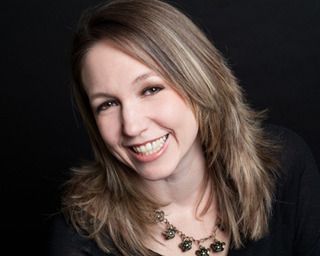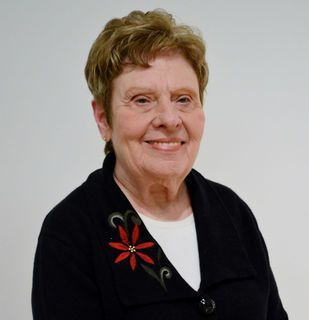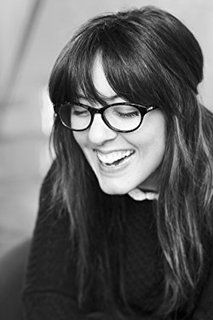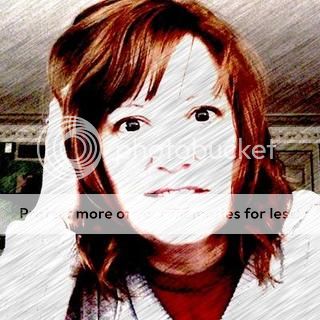The Other Einstein
By Marie Benedict
October 18, 2016;
Hardcover,
ISBN 9781492637257
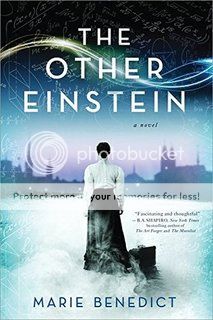
Book Info:
Title: The Other Einstein
Author: Marie Benedict
Release Date: October 18, 2016
Publisher: Sourcebooks Landmark
Praise for The Other Einstein
October 2016 Indie Next and LibraryReads Pick!
PopSugar’s “25 Books You’re Going to Curl Up with this Fall”
“The Other Einstein takes you into Mileva’s heart, mind, and study as she tries to forge a place for herself in a scientific world dominated by men.”– Bustle
“…an ENGAGING and THOUGHT PROVOKING fictional telling of the poignant story of an overshadowed woman scientist.”– Booklist
“...INTIMATE and IMMERSIVE historical novel....
Prepare to be moved by this provocative history of a woman whose experiences will resonate with today’s readers.”– Library Journal, Editors' Fall Picks
“Many will enjoy Benedict’s feminist views and be fascinated by the life of an almost unknown woman.”– RT Book Reviews, 4 Stars
“Benedict's debut novel carefully traces Mileva's life—from studious schoolgirl to bereaved mother—with attention paid to the conflicts between personal goals and social conventions. An intriguing… reimagining of one of the strongest intellectual partnerships of the 19th century.”– Kirkus
“In her compelling novel… Benedict makes a strong case that the brilliant woman behind [Albert Einstein] was integral to his success, and creates a rich historical portrait in the process.”– Publishers Weekly
Summary:
A vivid and mesmerizing novel about the extraordinary woman who married and worked with one of the greatest scientists in history.
What secrets may have lurked in the shadows of Albert Einstein’s fame? His first wife, Mileva “Mitza” Maric, was more than the devoted mother of their three children—she was also a brilliant physicist in her own right, and her contributions to the special theory of relativity have been hotly debated for more than a century.
But as Albert’s fame grows, so too does Mileva’s worry that her light will be lost in her husband’s shadow forever. A literary historical in the tradition of The Paris Wife and Mrs. Poe, The Other Einstein reveals a complicated partnership that is as fascinating as it is troubling.
Review: ATTENTION: Although the characters in this story are real historical figures, the story itself is a work of fiction. This is not a factual biography.
This book imagines the relationship between Albert Einstein and his first wife Mileva Maric. Mileva was a brilliant physicist, and many people feel she made significant contributions to Albert's research into the theory of relativity. This story explores that possibility.
While I enjoyed the author's writing, I had to keep reminding myself that the entire story is a work of fiction, based on presumption, what ifs and maybes. That, for me, at least, made it difficult to immerse myself in the story.
If you can get past the idea that this story has little to no basis in fact, then you will find it a very enjoyable read.
**I received a copy of this book with no expectation of a positive review. All thoughts and opinions are entirely my own.**
Rating: Four stars
Buy Links:
About the Author:

Marie Benedict is a lawyer with more than ten years’ experience as a litigator at two of the country’s premier law firms and for Fortune 500 companies. She is a magna cum laude graduate of Boston College with a focus in history and art history and a cum laude graduate of the Boston University School of Law. She lives in Pittsburgh with her family.
Social Media Links:
THE OTHER EINSTEIN
a novel
MARIE BENEDICT
PROLOGUE
August 4, 1948
62 Huttenstrasse
Zürich, Switzerland
The end is near. I feel it approaching like a dark, seductive shadow that will extinguish my remaining light. In these last minutes, I look back.
How did I lose my way? How did I lose Lieserl?
The darkness quickens. In the few moments I have left, like a meticulous archaeologist, I excavate the past for answers. I hope to learn, as I suggested long ago, if time is truly relative.
Mileva “Mitza” Marić Einstein
PART I
Every body perseveres in its state of rest, or of uniform motion in a right line, unless it is compelled to change that state by forces impressed thereon.
Sir Isaac Newton
CHAPTER 1
Morning
October 20, 1896
Zürich, Switzerland
I smoothed the wrinkles on my freshly pressed white blouse, flattened the bow encircling my collar, and tucked back a stray hair into my tightly wound chignon. The humid walk through the foggy Zürich streets to the Swiss Federal Polytechnic campus played with my careful grooming. The stubborn refusal of my heavy, dark hair to stay fixed in place frustrated me. I wanted every detail of the day to be perfect.
|
Squaring my shoulders and willing myself to be just a little taller than my regrettably tiny frame, I placed my hand on the heavy brass handle to the classroom. Etched with a Greek key design worn down from the grip of generations of students, the knob dwarfed my small, almost childlike hand. I paused. Turn the knob and push the door open, I told myself. You can do this. Crossing this threshold is nothing new. You have passed over the supposedly insurmountable divide between male and female in countless classrooms before. And always succeeded.
Still, I hesitated. I knew all too well that, while the first step is the hardest, the second isn’t much easier. In that moment, little more than a breath, I could almost hear Papa urging me on. “Be bold,” Papa would whisper in our native, little-used Serbian tongue. “You are a mudra glava. A wise one. In your heart beats the blood of bandits, our brigand Slavic ancestors who used any means to get their due. Go get your due, Mitza. Go get your due.”
I could never disappoint him.
I twisted the knob and swung the door wide open. Six faces stared back at me: five dark-suited students and one black-robed professor. Shock and some disdain registered on their pale faces. Nothing—not even rumors—had prepared these men for actually seeing a woman in their ranks. They almost looked silly with their eyes bulging and their jaws dropping, but I knew better than to laugh. I willed myself to pay their expressions no heed, to ignore the doughy faces of my fellow students, who were desperately trying to appear older than their eighteen years with their heavily waxed mustaches.
A determination to master physics and mathematics brought me to the Polytechnic, not a desire to make friends or please others. I reminded myself of this simple fact as I steeled myself to face my instructor.
Professor Heinrich Martin Weber and I looked at each other. Long-nosed, heavily browed, and meticulously bearded, the renowned physics professor’s intimidating appearance matched his reputation.
I waited for him to speak. To do anything else would have been perceived as utter impertinence. I could not afford another such mark against my character, since my mere presence at the Polytechnic was considered impertinent by many. I walked a fine line between my insistence on this untrodden path and the conformity still demanded of me.
“You are?” he asked as if he weren’t expecting me, as if he’d never heard of me.
“Miss Mileva Marić, sir.” I prayed my voice didn’t quaver.
Very slowly, Weber consulted his class list. Of course, he knew precisely who I was. Since he served as head of the physics and mathematics program, and given that only four women had ever been admitted before me, I had to petition him directly to enter the first year of the four-year program, known as Section Six. He had approved my entrance himself! The consultation of the class list was a blatant and calculating move, telegraphing his opinion of me to the rest of the class. It gave them license to follow suit.
“The Miss Marić from Serbia or some Austro-Hungarian country of that sort?” he asked without glancing up, as if there could possibly be another Miss Marić in Section Six, one who hailed from a more respectable location. By his query, Weber made his views on Slavic eastern European peoples perfectly clear—that we, as dark foreigners, were somehow inferior to the Germanic peoples of defiantly neutral Switzerland. It was yet another preconception I would have to disprove in order to succeed. As if being the only woman in Section Six—only the fifth to ever be admitted into the physics and mathematics program—wasn’t enough.
“Yes, sir.”
“You may take your seat,” he finally said and gestured toward the empty chair. It was my luck that the only remaining seat was the farthest away from his podium. “We have already begun.”
Begun? The class was not designated to start for another fifteen minutes. Were my classmates told something I wasn’t? Had they conspired to meet early? I wanted to ask but didn’t. Argument would only fuel the fires against me. Anyway, it didn’t matter. I would simply arrive fifteen minutes earlier tomorrow. And earlier and earlier every morning if I needed to. I would not miss a single word of Weber’s lectures. He was wrong if he thought an early start would deter me. I was my father’s daughter.
Nodding at Weber, I stared at the long walk from the door to my chair and, out of habit, calculated the number of steps it would take me to cross the room. How best to manage the distance? With my first step, I tried to keep my gait steady and hide my limp, but the drag of my lame foot echoed through the classroom. On impulse, I decided not to mask it at all. I displayed plainly for all my colleagues to see the deformity that marked me since birth.
Clomp and drag. Over and over. Eighteen times until I reached my chair. Here I am, gentlemen, I felt like I was saying with each lug of my lame foot. Take a gander; get it over with.
Perspiring from the effort, I realized the classroom was completely silent. They were waiting for me to settle, and perhaps embarrassed by my limp or my sex or both, they kept their eyes averted.
All except one.
To my right, a young man with an unruly mop of dark brown curls stared at me. Uncharacteristically, I met his gaze. But even when I looked at him head-on, challenging him to mock me and my efforts, his half-lidded eyes did not look away. Instead, they crinkled at the corners as he smiled through the dark shadow cast by his mustache. A grin of great bemusement, even admiration.
Who did he think he was? What did he mean by that look?
I had no time to make sense of him as I sat down in my seat. Reaching into my bag, I withdrew paper, ink, and pen and readied for Weber’s lecture. I would not let the bold, insouciant glance of a privileged classmate rattle me. I looked straight ahead at the instructor, still aware of my classmate’s gaze upon me, but acted oblivious.
Weber, however, was not so single-minded. Or so forgiving. Staring at the young man, the professor cleared his throat, and when the young man still did not redirect his eyes toward the podium, he said, “I will have the attention of the entire classroom. This is your first and final warning, Mr. Einstein.”
a Rafflecopter giveaway






